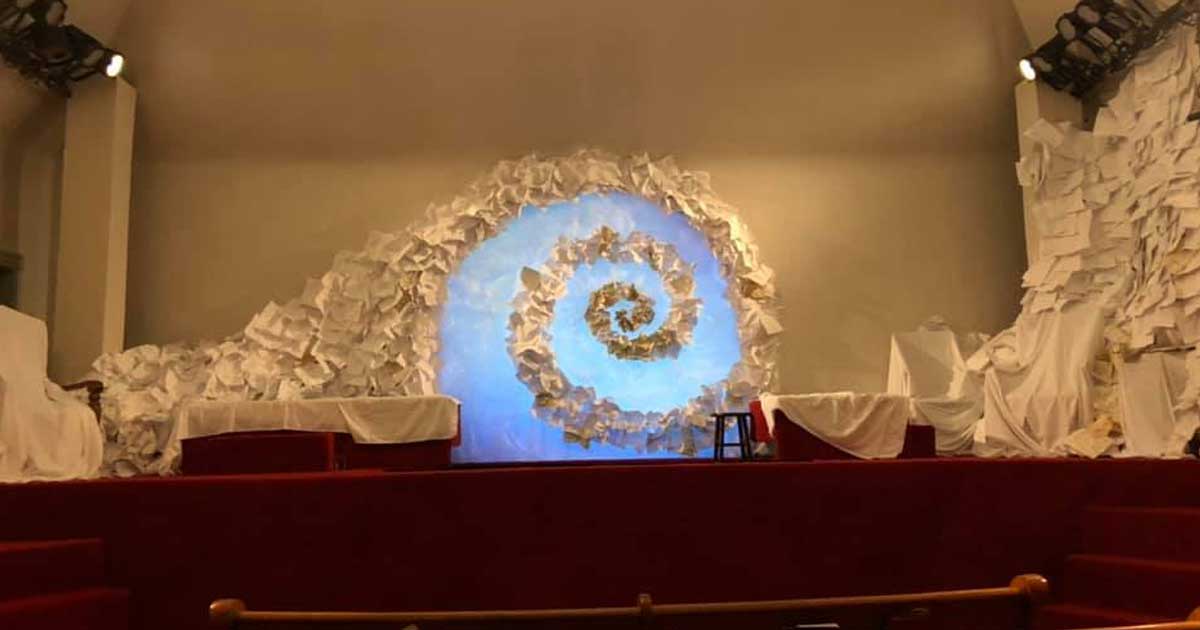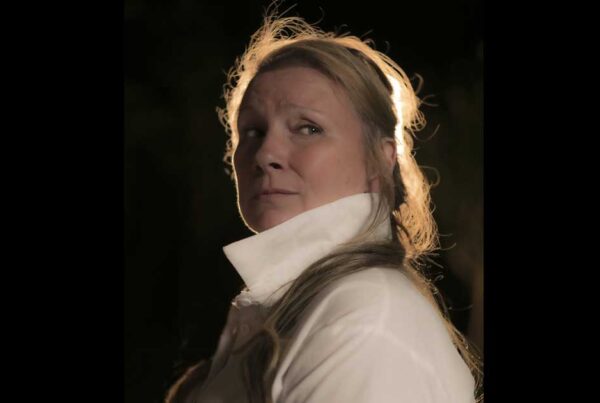
‘Burgh Vivant – On the night of his funeral, Anne Hathaway (Sheila McKenna) recounts her love, labors and her losses in Vern Thiessen’s “Shakespeare’s Will.” She tells the tale of meeting young William Shakespeare, her future husband, at the fair in Stratford-Upon-Avon, the town where the two grew up. She details their courtship and unusual marriage.
Thiessen admits to playing ‘fast and loose” with the material, since many of the details of Will Shakespeare and Anne Hathaway’s life are obscured from history. The playwright even chooses a definitive ending for a Hamnet, their son who died at a young age (even though there is no death record for the child).
Though Thiessen’s play is mostly speculation, it is a compelling story, despite being a tiny bit longer than it needs to be. To say too much would be to spoil the surprises.
McKenna does a spectacular job as Hathaway. She is a commanding presence. While it is a one-woman show, she interacts with two characters in non-speaking roles, Hamnet (Simon Nigam) and violinist Dawn Posey.
Nigam is very emotive, even though his character never speaks. He’s an odd addition for the writer to throw him in, but Nigam does it so splendidly, he’s a welcome addition.
Posey plays beautifully. The violinist even composed some of the music, “On a bed of rushes,” and “It scritches and scratches.”
There is some weird choreography. McKenna moves about waving her arms as if she was Endora performing a complicated time travel spell in the seventh season of “Bewitched.”
One person shows are notoriously difficult. It’s hard to keep the momentum going when the singular star has to provide all of the material, but director Melanie Dreyer keeps things moving fairly well.
Stephanie Mayer-Staley’s scenic design is a beautiful swirling vortex of paper, the Bard’s manuscripts twisted and crumpled, flying into a bright, aqua void. McKenna splashes about in a shallow puddle, representing a tidal pool on the shore.
There are beautiful and lyrical moments in “Shakespeare’s Will.” It has a fine ending. It may not be the truth, or the truth as we know it, but there is still beauty in it.




